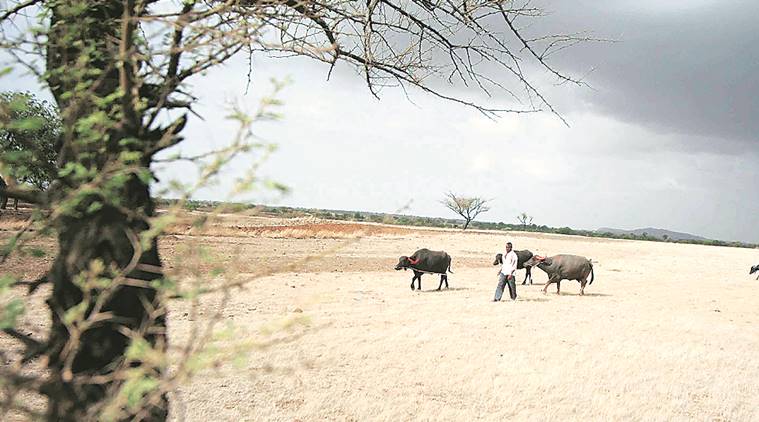
Gram growers in the drought-hit district of Marathwada are facing reduced yield and low prices. Low demand and offloading stock by government agencies have dimmed the prices of good realisation for farmers this year.
Farmers in Vidarbha and Marathwada grow gram as a major rabi crop. The crop residue also acts as dry fodder for animals in the summer. Districts of Latur, Osmanabad, Nanded, Akola and Buldhana are major gram growing areas of Maharashtra. The state has reported 13.13 lakh hectare of chana acreage as compared to 19.77 lakh hectare last year. The acreage had come down this year due to moisture stress from the drought.
Besides Maharashtra, Madhya Pradesh, Karnataka and Andhra Pradesh are also major producers of pulses.
Since the start of the harvesting season, gram has been trading below its government declared minimum support price of Rs 4,620 per quintal. At Latur’s wholesale market — the largest pulses market in Maharashtra — the commodity is selling at Rs 4,100-4,120 per quintal. As arrivals are still to pick up further, price drop is not ruled. Chana prices had touched an all-time low last year as sowing area had seen an at least 6-10 per cent increase — despite the import duty of chana having increased to 40 per cent.
Farmers in Latur, Parbhani and other parts of Marathwada have reported low per acre yields. So, instead of 8-10 quintal per acre yield, farmers in these parts have reported at least 2-3 quintal per acre yield. At current price, the cost of production is also not covered in many cases.
The decision of the National Cooperative Agricultural Marketing Federation (NAFED) to offload their stock now has also added to the troubles of farmers. Due to the consistent low prices, NAFED through the Maharashtra Cooperative Marketing Federation and the Vidharbha Cooperative Marketing Federation had effected procurement of chana at the MSP.
Last year NAFED, had effectively procured 27.24 lakh tonne of chana of which 19.60 lakh tonne remains unsold. As NAFED continues to sell its stored stock, wholesale prices have little or no chances of recovery. Also, there seems to be little clarity about the possibility of government procurement this year.
Nitin Kalantari,CEO of Latur-based Kalantry Foods — a manufacturer of pulses — said market interventions are necessary to boost prices. “Government procurement should start and NAFED sales should be stopped,” he said.